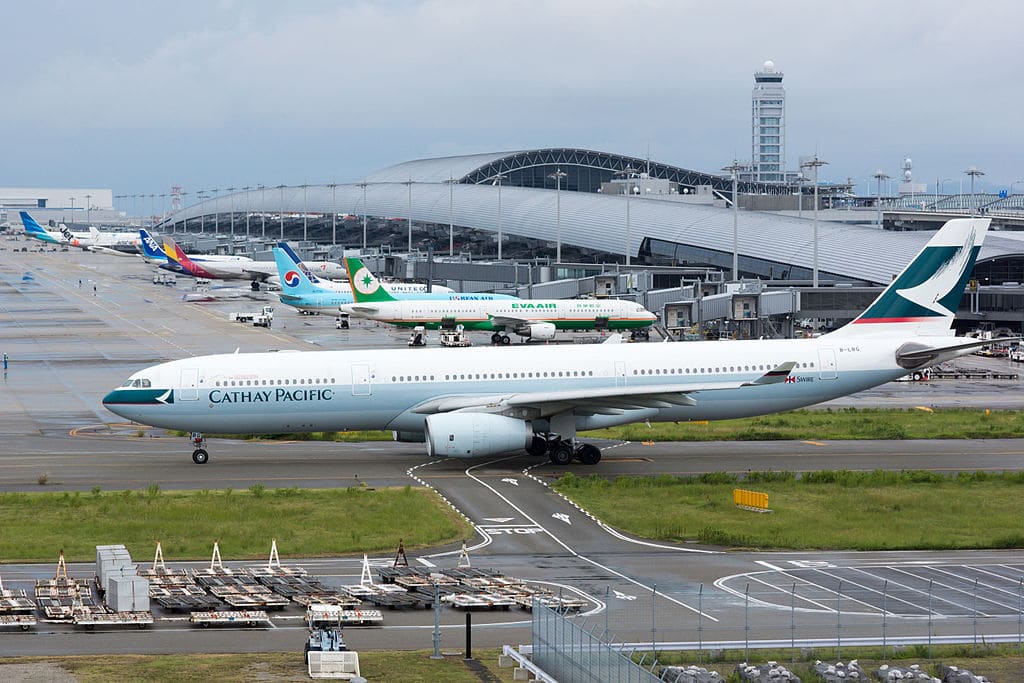Airport Authority Hong Kong has set out a plan to meet net zero emissions by 2050, including deploying a fully electric vehicle fleet on the ground and funding new green technologies.
—
Hong Kong International Airport, the world’s busiest cargo gateway and one of the busiest passenger airports, has pledged to achieve net zero emissions by 2050, with electric vehicles as the key to decarbonisation.
The Airport Authority Hong Kong (AAHK) aims to cut absolute carbon emissions by 55% by 2035 compared to 2018 levels, a benchmark that is similar to the one set by London’s Heathrow Airport, which is working towards to achieve carbon neutrality by mid-2030s.
“Our target is net zero instead of neutrality so it’s quite clear to us that we will try not to pursue any offset at all, in particular for the midpoint of 2035,” said Peter Lee, general manager of sustainability at Hong Kong airport. “In terms of the 2050 ultimate target, I think we need to wait and see what technology is coming,” Lee added.
The aviation industry currently accounts for only 2.5% of the global carbon emissions. However, with the projected growth trends, the sector’s emissions set to climb despite dropping to much lower levels during 2020 due to the COVID-19 pandemic. Decarbonising will be instrumental to help nations and territories, including Hong Kong, to limit global warming under 1.5C above pre-industrials and to avoid a climate catastrophe.
To meet the 2035 target, AAHK has set out roadmaps to reduce direct emissions at the airport as well as indirect emissions such as electricity consumption in a drafted carbon management action plan. For direct emission reduction, the airport will be electrifying all airside vehicles including tow trucks, container-loading and passenger-steps vehicles by the end of the decade, making the switch towards more renewable diesel, and more than doubling the amount of airfield charging stations. Currently, a only fifth of the ground service fleet is electric.
The airport will also install LED lighting and smart technology to better control energy efficiency and use for equipment such as air-conditioning, as well as develop new energy management solutions, to tackle indirect emissions.
AAHK plans to introduce a Business Partner Carbon Support Programme that will include a USD$2.56m (HKD$20m) Green Innovation and Technology Fund, to support the development and testing of new technologies to help meet the 2050 net zero target. While the airport already features fuelling infrastructure to support the use of sustainable aviation fuel (SAF), the fund could help scale up decarbonisation measures in aircrafts and at the airport.
“Innovation, capacity building and collaboration hold the key to achieving the Net-Zero Carbon target,” Lee adds. “We are pleased to see the positive response from our business partners in support of decarbonisation. With the collaborative effort of the airport community, we are fully committed to achieving this Net-Zero Carbon target in pursuit of our pledge to make HKIA the world’s greenest airport.”
You might also like: Decarbonising Aviation: The Future of Electric Aviation and Sustainable Aviation Fuel
Featured image by: Wikimedia Commons


















